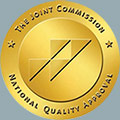The term “wet brain” is used to describe a chronic brain disorder known as Wernicke-Korsakoff syndrome.
Wernicke encephalopathy and Korsakoff syndrome are two separate brain conditions that both occur due to brain damage caused by vitamin B1 (thiamine) deficiency. Many individuals that struggle with alcohol abuse and/ or alcoholism lack vitamin B1, as alcohol interferes with the body’s ability to properly absorb certain minerals and nutrients, including vitamin B1.
Wernicke encephalopathy is characterized by bleeding in the brain that damages the lower areas of the brain (e.g., thalamus and hypothalamus). When the symptoms of Wernicke encephalopathy begin to lessen, Korsakoff syndrome develops because of permanent damage to areas of the brain involved with memory. Though Wernicke encephalopathy precedes Korsakoff syndrome, many members of the medical community regard them as different stages of the same disease. According to the National Institute on Alcohol Abuse and Alcoholism, between eighty and ninety percent of alcoholics with Wernicke encephalopathy go on to develop Korsakoff syndrome.
Signs and Symptoms
Every individual is different and has the propensity to exhibit a unique combination of signs and symptoms related to Wernicke-Korsakoff syndrome. Wet brain has a sudden onset, and the signs and symptoms present in two distinct stages:
- Stage One: common symptoms associated with Wernicke encephalopathy may include, but are not limited to the following examples, provided by Beth Israel Lahey Health Winchester Hospital:
- Confusion
- Loss of balance
- Lowered body temperature
- Lack of coordination
- Rapid heart rate
- Muscle atrophy and weakness
- Leg tremors
- Diminished reflexes
- Double vision
- Abnormal eye movements
- Coma
- Stage Two: common symptoms associated with Korsakoff syndrome may include, but are not limited to the following examples, provided by the Alzheimer’s Association:
- Memory loss
- Hallucinations
- Vision problems
- Inability to form new memories
- Disorientation and/ or confusion
- Confabulation (e.g., fabricating events to fill in memory gaps)
It is not uncommon for signs and symptoms of wet brain to be misinterpreted as other health problems. The treatment of Wernicke-Korsakoff syndrome will include remedying an individual’s vitamin B1 deficiency, which, for some could require months of intravenous vitamin B1 treatments. Once developed, Korsakoff syndrome cannot typically be reversed. However, when wet brain is caught early and properly treated during the Wernicke encephalopathy stage an individual may achieve a full recovery.
For Information and Support
Contemplating detox can be a very challenging time. Before any individual can begin to work on the underlying issues contributing to their substance abuse problem, they must be separated from the substances in their systems. If you are concerned for yourself or a loved one regarding substance abuse, and/ or addiction we recommend reaching out for help as soon as possible. The earlier you seek support, the sooner you and your loved ones can return to leading happy, healthy, and fulfilling lives. Sherwood Detox offers a stand-alone detox program. For additional information on detox, please do not hesitate to contact us at: 818-626-9959 or feel free to email us anytime. One of our trusted counselors is available to talk and discuss how we can best support you on your journey.









